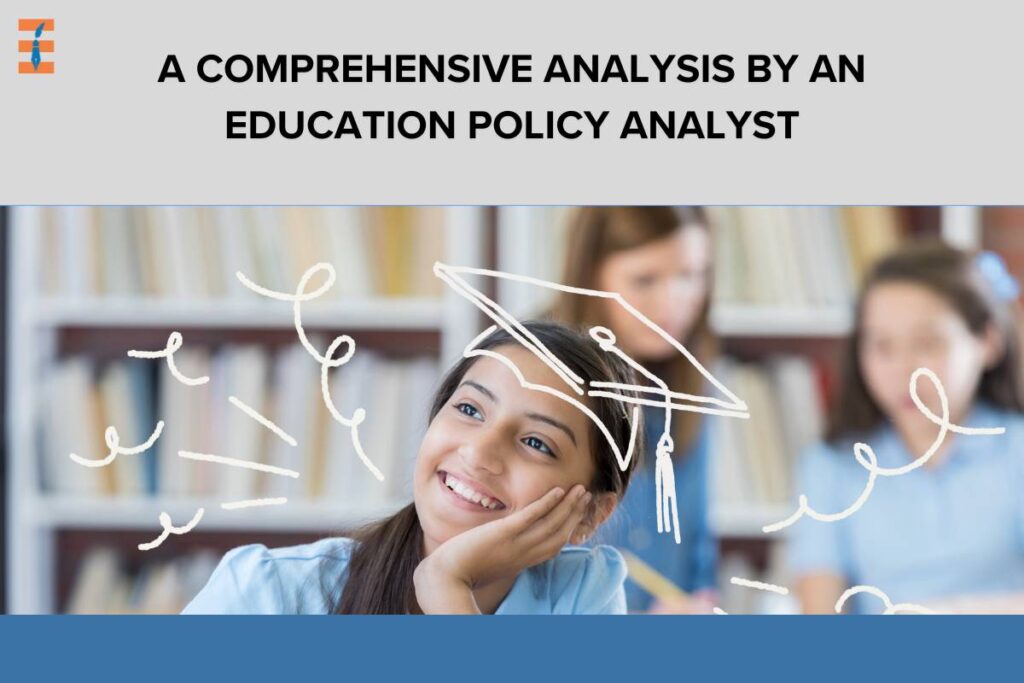Education plays a crucial role in personal and societal development. As our societies evolve and face new challenges, education policies become essential in shaping our future. An education policy analyst plays a significant role in examining and evaluating these policies to understand their impact, strengths, and areas that require improvement. This comprehensive analysis aims to uncover the various responsibilities of an education policy analyst, exploring the complexities of educational systems, the challenges they face, and the strategies for implementing effective reforms.
Understanding the Role of an Education Policy Analyst
At the heart of educational policymaking lies the need for informed decision-making. Education policy analysts serve as the bridge between policymakers, educators, and the broader community. Their role encompasses a range of responsibilities, including:
1. Policy Evaluation
It assesses the effectiveness of existing policies by examining their outcomes, implementation strategies, and alignment with broader societal goals.
2. Research and Data Analysis

They conduct rigorous research and analyze data to identify trends, disparities, and emerging issues within educational systems.
3. Stakeholder Engagement
Education policy analysts facilitate dialogue and collaboration among stakeholders, including government agencies, educational institutions, community organizations, and advocacy groups.
4. Advocacy and Reform
They advocate for evidence-based policy reforms aimed at improving educational outcomes, addressing inequities, and fostering innovation.
5. Policy Development
It contributes to the development of new policies by providing expert analysis, recommendations, and feasibility assessments.
Navigating the Educational Landscape: Challenges and Opportunities
The educational landscape is marked by a myriad of challenges, ranging from resource constraints to systemic inequities. Education policy analysts confront these challenges head-on, seeking innovative solutions and leveraging opportunities for positive change.
1. Equity and Access
Disparities in access to quality education persist, disproportionately affecting marginalized communities. Education policy analysts advocate for equitable resource allocation, inclusive policies, and targeted interventions to address these disparities.
2. Quality and Accountability
Ensuring high-quality education requires robust systems of accountability and continuous improvement. Education policy analysts evaluate assessment practices, curriculum standards, and teacher quality initiatives to enhance educational quality and student outcomes.
3. Technology and Innovation

The digital age presents both opportunities and challenges for education. They explore the potential of technology-enhanced learning, while also addressing issues of digital divide, privacy concerns, and online safety.
4. Globalization and Competitiveness
In an increasingly interconnected world, education systems must prepare students to thrive in a global economy. Education policy analysts examine international benchmarks, global workforce trends, and best practices in education reform to enhance competitiveness and global engagement.
5. Policy Implementation and Evaluation
Effective policy implementation requires careful planning, stakeholder engagement, and monitoring of outcomes. Education policy analysts assess the implementation fidelity of policies, identify barriers to success, and recommend adjustments for optimal impact.
Driving Meaningful Change: Strategies for Education Reform
Meaningful reform in education requires a holistic approach that addresses the root causes of inequity, fosters innovation, and empowers stakeholders. Education policy analysts play a crucial role in driving this change through strategic advocacy, evidence-based research, and collaborative leadership.
1. Equity-Centered Policies
Policies should prioritize equity by addressing systemic barriers to access and opportunity. Education policy analysts advocate for targeted interventions, such as equitable funding formulas, culturally responsive curricula, and support services for underserved populations.
2. Data-Informed Decision-Making
Data analysis is essential for understanding educational trends, identifying disparities, and measuring progress they promote the use of data-driven decision-making at all levels of the education system, from classroom instruction to policy development.
3. Collaboration and Partnerships

Education reform is a collective endeavor that requires collaboration among diverse stakeholders. They facilitate partnerships between government agencies, educators, parents, students, and community organizations to leverage resources, share best practices, and coordinate efforts.
4. Continuous Improvement
Education systems must embrace a culture of continuous improvement, where feedback loops, reflection, and adaptation are valued. They support initiatives for professional development, curriculum refinement, and evidence-based practices that promote ongoing learning and growth.
5. Future-Oriented Strategies
Anticipating future challenges and opportunities is essential for designing resilient education systems. Education policy analysts explore emerging trends in technology, workforce development, and societal change to inform forward-thinking policies that prepare students for the demands of tomorrow.
Conclusion
Education policy analyst plays a crucial role in shaping the future of education. They focus on promoting innovation, ensuring equal opportunities, and driving positive change. By understanding the complexities of the education system and utilizing evidence-based solutions, they work towards creating a fair and inclusive society. Through their expertise, passion, and dedication, they contribute to the ongoing improvement of education for all learners.
FAQs:
1. What qualifications are needed to become an education policy analyst?
Ans: Education policy analyst typically holds advanced degrees in fields like education, public policy, or economics. Relevant experience in research, data analysis, and policy advocacy is also important.
2. How do education policy analysts influence policymaking?
Ans: They influence policymaking through research, data analysis, advocacy, and stakeholder engagement. They provide evidence-based recommendations, assess policy impacts, and facilitate dialogue among stakeholders.
3. What challenges do education policy analyst faces?
Ans: Challenges include navigating political landscapes, balancing stakeholder interests, and addressing entrenched inequities. Limited resources, shifting priorities, and resistance to change are also common obstacles.
4. How do education policy analysts measure policy impact?
Ans: They use various research methods, including quantitative analysis and program evaluation, to assess outcomes such as academic achievement, graduation rates, and equity indicators.
5. What role do education policy analysts play in promoting equity?
Ans: They advocate for policies that address disparities in access and outcomes, identify root causes of inequity, and recommend targeted interventions. By prioritizing equity, they aim to create more inclusive educational systems.
Also Read: Nurturing Global Citizens: The Imperative of Global Citizenship Education










